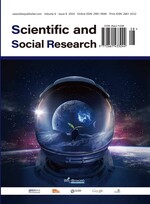Abstract
Urban memory is preserved not only in the collective consciousness of residents but also through tangible and intangible heritage, such as old streets, ancient buildings, and historical sites. Protecting urban memory helps maintain the city’s authentic historical character and enhances its sense of belonging. This paper systematically collects and organizes research materials on urban memory planning from both domestic and international sources, categorizes and analyzes the relevant literature, and reviews the perspectives, content, methods, and planning practices in urban memory research worldwide. By summarizing these research experiences, the paper aims to deepen the understanding of urban memory theory and offer new recommendations for renewal planning practices guided by urban memory.
References
Wen T, Zhang Q, 2016, Urban Space Reshaping and Urban Memory Perception: A Case Study of Foshan Lingnan Tiandi. Urban Problems, 2016(9): 42–47.
Schieder T, 1978, The Role of Historical Consciousness in Political Action. History and Theory, 17(4): 1–18. https://doi.org/10.2307/2504707
Rossi A, 1984, The Architecture of the City. MIT Press, Cambridge.
Olick JK, 2008, “Collective Memory”: A Memoir and Prospect. Memory Studies, 1(1): 23–29. https://doi.org/10.1177/1750698007083885
Gu MC, 2004, Don’t Let the City Lose its Memory. Chongqing Architecture, 2004(3): 5.
Wang F, Yan L, Wu BH, 2010, Urban Memory Planning Research: A Case Study of Xuanwu District, Beijing. International Journal of Urban Planning, 2010(1): 71–76.
Yu B, 2004, Urban Memory, thesis, Huazhong University of Science and Technology.
Ardakani MK, Oloonabadi SSA, 2011, Collective Memory as an Efficient Agent in Sustainable Urban Conservation. Procedia Engineering, 2011(21): 985–988. https://doi.org/10.1016/j.proeng.2011.11.2103
Zhu R, 2006, Urban Memory and Urban Form: Exploring the Continuity of Urban History and Culture from the Perspectives of Psychology and Sociology. Southern Architecture, 2006(11): 5–9.
Zhou W, Zhu YF, 2015, A Review of Urban Memory Research in the Past 20 Years. Urban Problems, 2015(03): 2–10 + 104. https://doi.org/10.13239/j.bjsshkxy.cswt.150301
Walkowitz D, Knauer LM, 2020, Memory and the Impact of Political Transformation in Public Space. Duke University Press, Durham. https://doi.org/10.1515/9780822386346
Lewicka M, 2008, Place Attachment, Place Identity, and Place Memory: Restoring the Forgotten City Past. Journal of Environmental Psychology, 28(3): 209–231. https://doi.org/10.1016/j.jenvp.2008.02.001
Cao S, Duan JY, Hou S, et al., 2012, The Beijing Central Axis from the Perspective of Urban Memory Assessment. Beijing Planning and Construction, 2012(02): 99–103.
Wang F, Yan L, Xiong XK, 2012, A Study of Urban Memory in Historical Areas based on Tourists’ Cognition: A Case Study of Nanluoguxiang in Beijing. Acta Geographica Sinica, 2012(04): 545–556.
Zhou W, 2017, Research on the Perception Dimension of Major Local Festivals based on Urban Memory: A Case Study of the Qinhuai Lantern Festival in Nanjing. Modern Urban Studies, 2017(03): 112–116. https://doi.org/10.3969/j.issn.1009-6000.2017.03.017
Li WM, Jiang JY, Shen TT, 2010, Measuring and Inheriting Urban Memory: A Case Study of Xiaoying Lane in Hangzhou. Urban Problems, 2010(01): 21–26. https://doi.org/10.13239/j.bjsshkxy.cswt.2010.01.004
Zhang XL, 2021, Research on the Evaluation and Renewal Strategy of the Unit Compound based on Place Memory, thesis, Hebei University of Engineering. https://doi.org/10.27104/d.cnki.ghbjy.2021.000119
Kang W, 2016, Urban Memory-based Renewal and Protection of Harbin Enterprise Compound, thesis, Harbin Institute of Technology.
Ding WJ, Liu F, 2022, Protection and Renewal of Historical and Cultural Blocks from the Perspective of Collective Memory. Architecture and Culture, 2022(2): 207–210. https://doi.org/10.19875/j.cnki.jzywh.2022.02.078
Wang F, Yan L, Xiong XK, et al., 2012, Research on the Urban Memory of Historical Areas based on Tourists’ Cognition: A Case Study of the Historical Area of Nanluoguxiang in Beijing. Acta Geographica Sinica, 67(4): 545–556.
Wu HJ, 2019, Research on the Continuation of Urban Memory in the Old Industrial Base of Northeast China, thesis, Harbin Institute of Technology. https://doi.org/10.27061/d.cnki.ghgdu.2019.004938
Till KE, 2012, Wounded Cities: Memory-work and a Place-based Ethics of Care. Political Geography, 31(1): 3–14. https://doi.org/10.1016/j.polgeo.2011.10.008
Inwood JF, 2009, Contested Memory in the Birthplace of a King: A Case Study of Auburn Avenue and the Martin Luther King Jr. National Park. Cultural Geographies, 16(1): 87–109. https://doi.org/10.1177/1474474008097981
